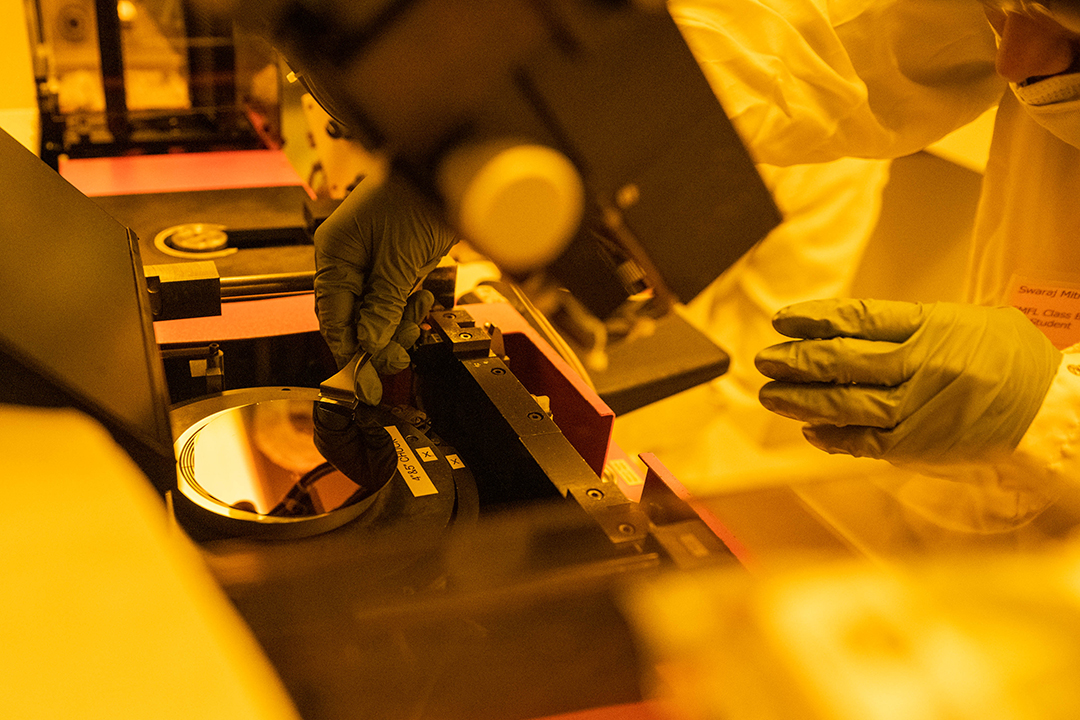RIT becomes partner in national semiconductor center
Kai Ni will lead JUMP 2.0 contribution to center through work on novel high-performance memory
RIT has become a partner in the newly established SUPREME Center, a national semiconductor research center based at Cornell University.
Rochester Institute of Technology recently became a partner in the SUPREME Center (Superior Energy-efficient Materials and Devices), a new $34 million research center based at Cornell University. The center will focus on development of energy-efficient semiconductor materials and technologies.
Kai Ni, an assistant professor of electrical engineering in RIT’s Kate Gleason College of Engineering, will lead faculty researchers and students as part of the national collaboration.
“This center is about improving advanced materials and devices. It is about high-performance logic, interconnect, and memory,” said Ni, who has been at the forefront of developing emerging charge-based memories—elements of semiconductors that regulate and control electrical signals within devices. “We are part of the team developing memory technologies because that is what we are good at. We are looking beyond the next 10-20 years. And this work is how we can mobilize a whole U.S. academic sector to jointly look for solutions.”
As part of SUPREME, RIT will seek to demonstrate scalable performance improvements in future microsystems by developing novel device architectures through the use of new physics and material properties. Funding for the university’s contributions is nearly $1.3 million.
Overall funding from the Semiconductor Research Corporation (SRC) was distributed to establish seven centers across the country as part of SRC’s Joint University Microelectronics Program (JUMP) 2.0 initiatives. Collaborations are aimed at accelerating U.S. advances in information and communications technologies. Complementing substantial government and state funding, this is part of a larger effort to revitalize the semiconductor industry with new advances in technology, stronger workforce development initiatives, and increased capabilities.
The SUPREME Center will have 14 partner universities: Cornell; RIT; Massachusetts Institute of Technology; Boise State University; Georgia Institute of Technology; North Carolina State University; Northwestern University; Rensselaer Polytechnic Institute; Stanford University; Yale University; the University of Colorado, Boulder; the University of Texas, Austin; the University of California, Santa Barbara; and the University of Notre Dame.
Huili Grace Xing, the William L. Quackenbush Professor of Engineering in materials science and engineering, and in electrical and computer engineering, at Cornell Engineering, will serve as the center’s director. The seven national centers are:
- Cognition: Next-generation AI systems and architectures (COCOSYS: Center for the Co-Design of Cognitive Systems, Georgia Institute of Technology)
- Communications and Connectivity: Efficient communication technologies for ICT systems (CUBIC: Center for Ubiquitous Connectivity, Columbia University)
- Intelligent Sensing to Action: Sensing capabilities and embedded intelligence to enable fast and efficient generation of actions (COGNISENSE: Center on Cognitive Multispectral Sensors, Georgia Institute of Technology)
- Systems and Architectures for Distributed Compute: Distributed computing systems and architectures in an energy efficient compute and accelerator fabric (ACE: Evolvable Computing for Next Generation Distributed Computer Systems, University of Illinois Urbana-Champaign)
- Intelligent Memory and Storage: Emerging memory devices and storage arrays for intelligent memory systems (PRISM: Center for Processing with Intelligent Storage and Memory, University of California San Diego)
- Advanced Monolithic and Heterogenous Integration: Novel electric and photonic interconnect fabrics and advanced packaging (CHIMES: Center for Heterogeneous Integration of Micro Electronic Systems, Penn State)
- High-Performance Energy Efficient Devices: Novel materials, devices, and interconnect technologies to enable next-generation digital and analog applications (SUPREME: Superior Energy-Efficient Materials and Devices, Cornell University)













